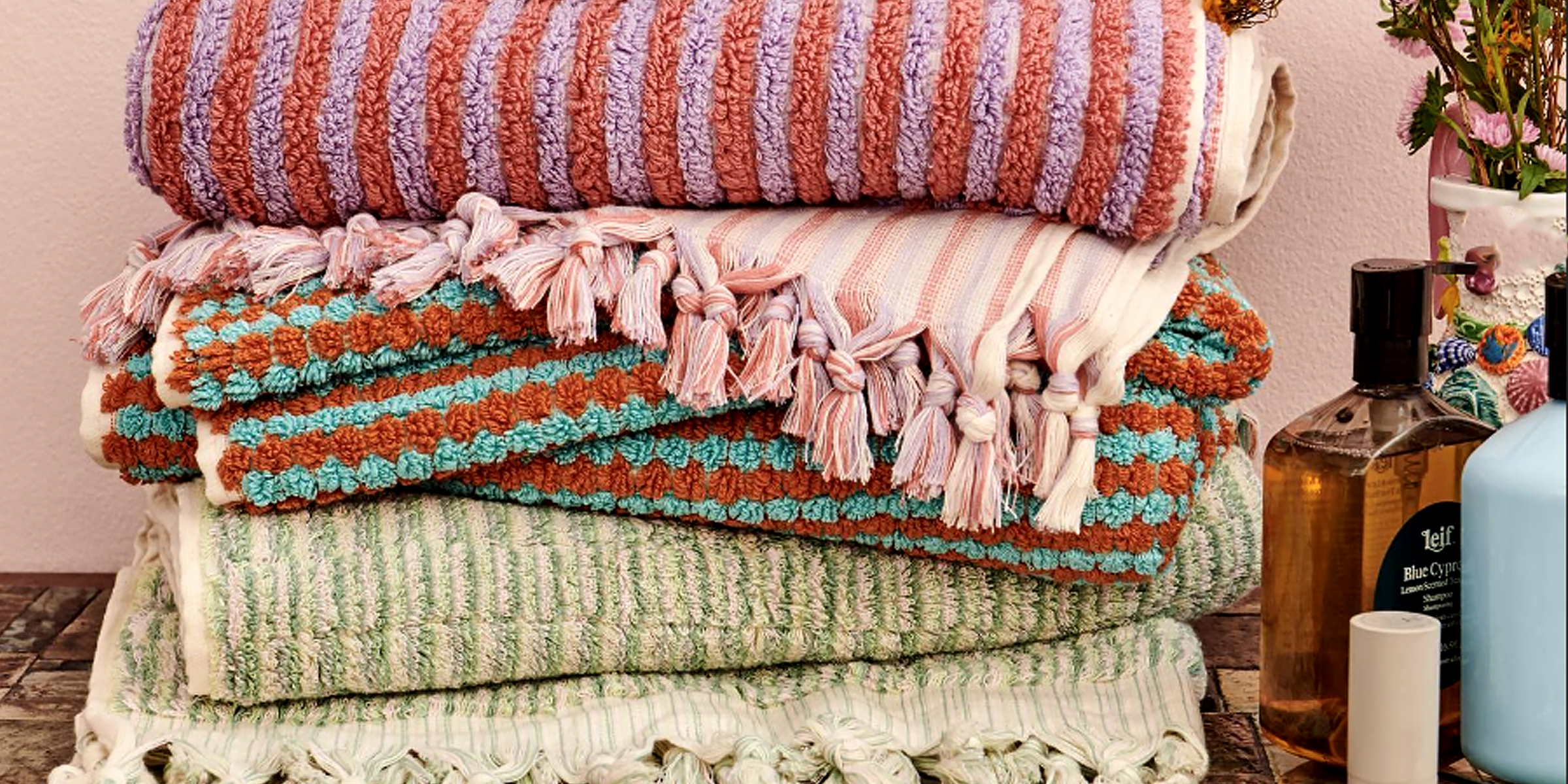
Pros and Cons of Turkish Towels — All You Need to Know about This Centuries-Old Turkish Bath Staple

Turkish towels have been widely regarded as one of the best towels on the market thanks to their absorbent and long-lasting properties. However, if you are considering giving Turkish towels a try, you should weigh both their pros and cons before committing to a purchase.
Turkish towels — also known as foutas — are a soft and lightweight type of towel woven with a rich history that dates back centuries. People traditionally used these large, flat-woven towels made in Turkey after Turkish baths; however, since being rediscovered, Turkish towels have become household staples in many homes.
But, like many things, Turkish towels have both pros and cons. Continue reading to learn more about the qualities that make Turkish towels so impressive, and why these towels do not appeal to others.
Pros and Cons of Turkish Towels
While Turkish towels are absorbent and long-lasting, they lack the cozy softness of other towels. Find out more about the pros and cons of Turkish towels below:
Pros:
1. Sand does not stick to Turkish towels: Turkish towels are not only perfect for drying your skin after stepping out of the shower but also make excellent beach towels as their properties prevent sand from sticking to the material. With Turkish towels, you can kiss the uncomfortable sensation of having grainy sand rub against your skin goodbye.

A woman rubbing sand off her leg | Source: Getty Images
2. If properly cared for, Turkish towels can last longer than other towels: The best way to clean Turkish towels is to wash them on a gentle washing machine cycle in cold or warm water without any bleach or fabric softener, then allow them to air dry. If you follow these simple cleaning steps, you can rest assured that you'll get your money's worth with Turkish towels, as they tend to last a long time when properly cared for.

A woman smelling freshly cleaned towels | Source: Getty Images
3. Turkish towels are very absorbent, eco-friendly, and dry quickly: Thanks to their thin and lightweight features, Turkish towels dry very quickly and will leave you dry in no time as their 100% Turkish cotton fabric makes them very absorbent. Most Turkish towels are also eco-friendly, as they are made from sustainable cotton and do not contain toxic or hazardous chemicals.

A woman drying her face with a towel | Source: Getty Images
Cons:
1. Turkish towels lack the coziness of traditional towels: While they are lightweight, the manufacturing process of Turkish towels produces a tightly woven and thin towel. Thus, they do not have the plush and fluffy feel of regular, thicker towels.

Turkish towels are not as thick and fluffy as regular towels. | Source: Getty Images
2. Not everyone is a fan of the fringes on Turkish towels: Most Turkish towels have fringes along the edge of the shorter side of the towel, and some may not like this design.
3. Turkish towels are more expensive: Prepare to spend a pretty penny when investing in Turkish towels, as they tend to be more costly than other towels.

An unhappy woman opening her wallet to find it empty. | Source: Getty Images
Now that you know the pros and cons of Turkish towels, you can compare the good with the bad and decide whether these expensive yet eco-friendly towels are for you. For more household pros and cons, here is a comprehensive guide on the pros and cons of Marmoleum flooring.